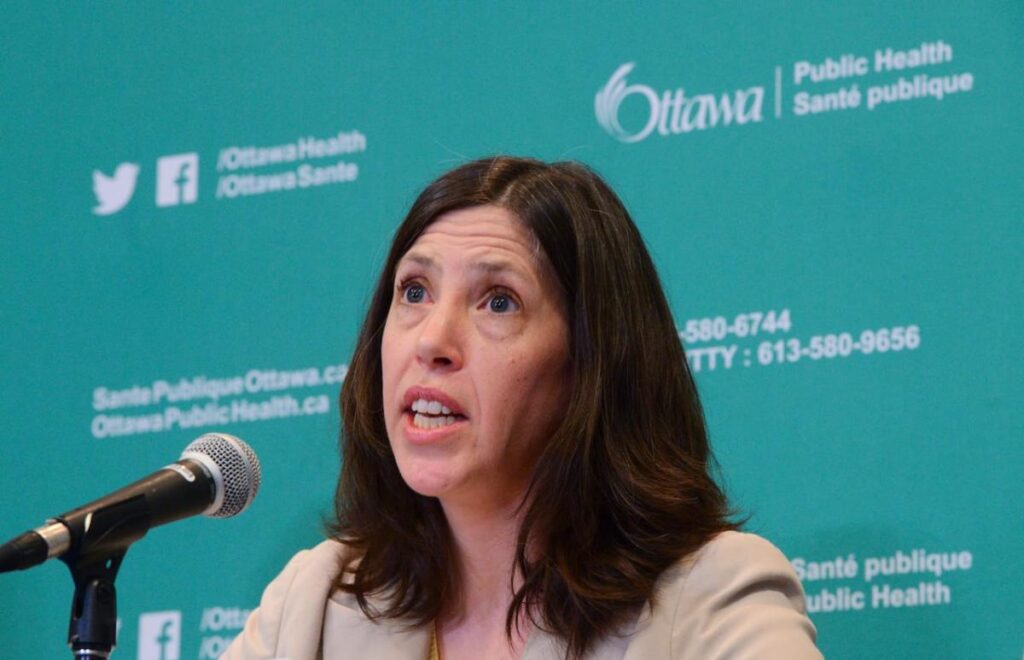Ottawa Public Health is sounding the alarm about its ability to respond to infectious diseases as reported cases rise and become more complex to manage.
In its latest report, Ottawa Public Health (OPH) recommended that the city's board of health request a budget review from the Ontario Ministry of Health to improve the city's response to infectious diseases, and urged the minister to expedite the development of provincial tools to help manage and monitor these diseases.
The announcement comes as health officials outline the dire situation for their resources amid rising case numbers.
OPH said its primary work is to prevent and mitigate the spread of infectious diseases through case investigation, monitoring and support for infected patients, and contact tracing, which are done through various programs within the department and OPH is required to follow state regulations.
But OPH said it has seen a “significant increase” in workload in recent years due to rising disease rates, population growth, migration, travel and the emergence of new diseases due to climate change.
“Current resources are not sufficient to sustain the operational effort required to achieve the targets set out in the provincial regulations,” said the report, tabled by Ottawa's medical officer of health, Dr. Bella Etches.
“Infection rates are likely to continue to rise beyond 2024, which is expected to place further strain on the program.”
Diseases on the rise, including Lyme disease and HIV
OPH said there were 7,608 confirmed reports of infectious diseases last year, excluding influenza and COVID-19.
That's an increase of more than 6% compared with the pre-pandemic 2017 to 2019 average, according to the agency.
Diseases with the largest increases in confirmed reports between this period and 2023 include:
Lyme disease has increased by 99 percent.
Invasive group A streptococcal infections (iGAS) increased by 110 percent.
HIV increased by 73 percent.
Cyclosporiasis, up 71 percent.
Other notable diseases that have seen increases include gonorrhea, syphilis, tuberculosis and hepatitis B, according to data released by the Ontario Ministry of Health in Ottawa in May.
In addition to challenges such as lack of access to family doctors and cases of antibiotic-resistant bacteria (Ottawa reported its first locally transmitted case of Shigellosis, an extensively drug-resistant bacteria, in March), OPH says it is using outdated provincial reporting tools that are inadequate to meet reporting standards.
“The Department of Health is working to develop a new state tool, but the tool will likely not be available for several years,” the report states, which urges states to update the tool as soon as possible.
“Outdated technology continues to be a significant contributor to case and contact management workload,” the report said.
Rise in infections not surprising, says professor
Dr. Giorgia Souris, an infectious disease specialist and assistant professor at the University of Ottawa, said the increase in infections in the city isn't a surprise, adding that it's a province-wide trend.
Souris pointed to the resurgence of vaccine-preventable diseases like measles, which the report attributes to a pandemic-related drop in vaccination rates among Ottawa's young people.
“For some time, attention, resources and funding have been primarily focused on COVID-19 and other diseases have been ignored. They were already here and now we are paying the price,” she said.
OPH said it needs to invest in the equivalent of five full-time staff to meet infectious disease control standards, and that further investments in staffing will be needed in the coming years as the city's population grows.
Hannah Jensen, spokesperson for Health Minister Sylvia Jones, said in an emailed statement Friday that the province has increased its investment in OPH by more than 14 per cent since 2018.
Jensen said this is in addition to the $100 million invested in public health departments across the state during the COVID-19 pandemic.
Jensen's statement added that the state will reinstate a 75/25 percent state/city cost-sharing model this year and increase the base budget by 1 percent each year for three years.
The OPH report is scheduled to go before the Board of Health on June 17th.



